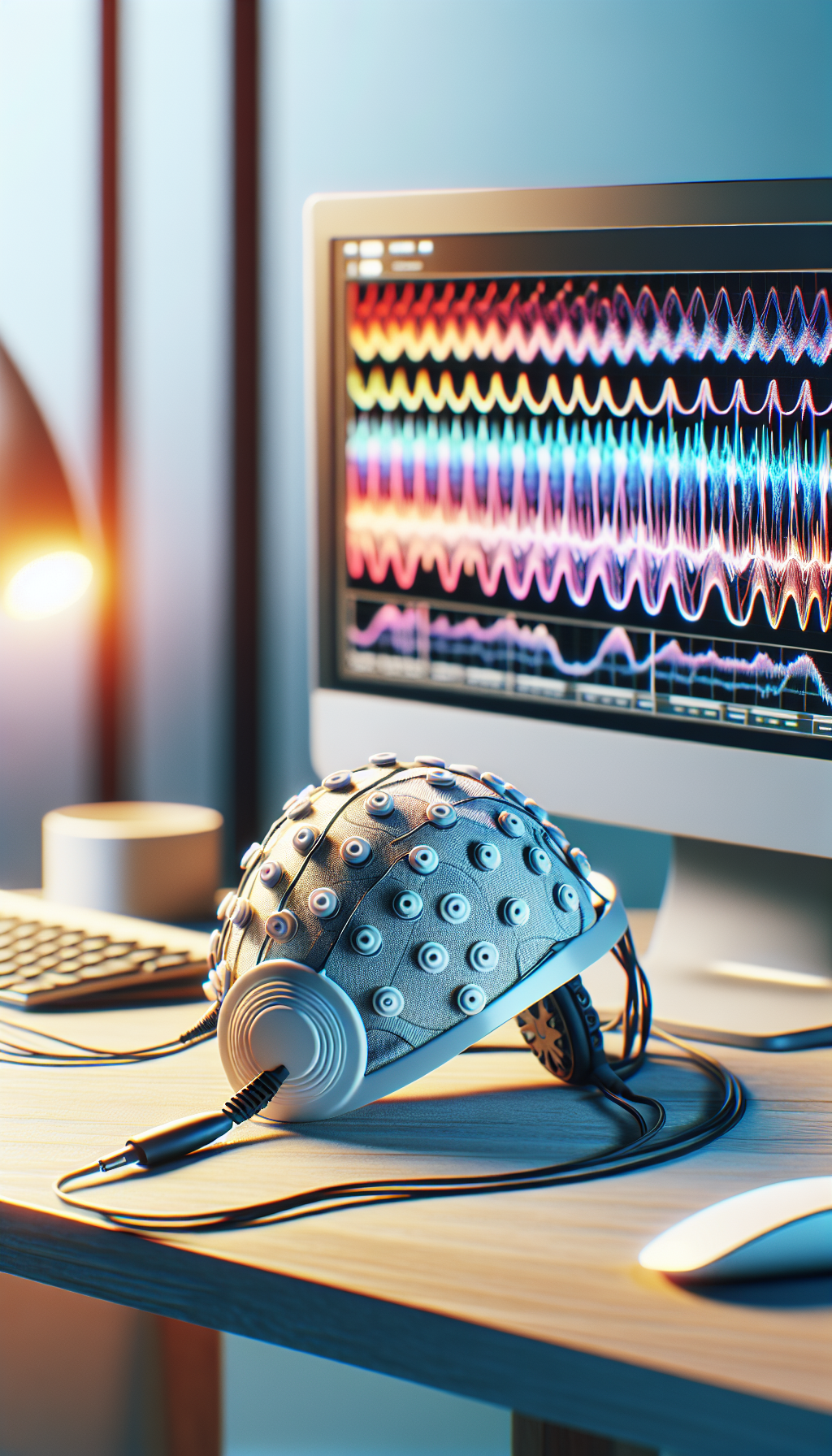In the pursuit of cognitive wellness and peak mental performance, one innovative approach has garnered significant attention: neurofeedback. This technology-backed method offers a non-invasive route to enhancing attentional capacities, which is particularly valuable in our fast-paced, information-saturated world. In this comprehensive exploration, we will delve into what neurofeedback entails, its mechanisms, and its tangible benefits for attention enhancement, while providing insights from cutting-edge research and related health domains.
What is Neurofeedback?
Neurofeedback, also known as EEG biofeedback, is a type of biofeedback that utilizes real-time displays of brain activity—most commonly electroencephalography (EEG)—to teach self-regulation of brain functions. By observing their brainwave patterns on a screen, individuals can learn to control and alter their mental state, leading to improved cognitive functions, including attention.
The Science Behind Neurofeedback
Neurofeedback relies on the brain’s intrinsic ability for neuroplasticity—the capacity to change its neural connections in response to learning or experience. When individuals receive feedback about their brainwaves and are rewarded for modifying them towards a desired state, they gradually learn to enter that state more easily and maintain it for longer periods.
For those seeking to hone their attention, neurofeedback targets the neural networks associated with focus and concentration. Typically, this involves increasing the amplitude of beta waves, which are linked to active, engaged attention, and reducing excessive theta waves, often associated with inattentiveness.
Neurofeedback in Practice
During a neurofeedback session, electrodes are placed on the scalp to measure brainwave activity. Participants engage with specific tasks or games that respond to their brainwave patterns. For instance, a game may only progress when the user maintains a high level of beta waves, indirectly training their brain to sustain attention.
Enhancing Attention Through Neurofeedback
Attention enhancement through neurofeedback can be particularly beneficial for individuals with attention-deficit/hyperactivity disorder (ADHD), as well as for those looking to improve their cognitive performance due to high-demand academic or professional environments. Studies have reported that after consistent neurofeedback training, participants exhibit increased attention span, reduced impulsivity, and improved task completion.
Related Health Domains
Given that attention is a cognitive function deeply intertwined with overall brain health, it is worthwhile to consider the broader context of cognitive wellness. For comprehensive insights, readers may find the article on Brain Health particularly enriching. Maintaining a healthy brain is foundational to enhancing attention and cognitive functions at large.
Research and External Resources on Neurofeedback
Research into neurofeedback has shown promising results. For instance, a study published in the journal Applied Psychophysiology and Biofeedback found that neurofeedback significantly improved attention and working memory performance. Additionally, a meta-analysis in the Clinical EEG and Neuroscience journal indicates that neurofeedback may produce long-lasting improvements in attention and executive functioning.
For those interested in the scientific underpinnings of neurofeedback, resources like the International Society for Neurofeedback & Research provide a wealth of information on the latest findings and methodologies.
Neurofeedback’s Relation to Other Cognitive Enhancement Strategies
Neurofeedback does not exist in isolation but is part of a broader spectrum of cognitive enhancement strategies. Integrating neurofeedback with other interventions, such as mindfulness practices or cognitive training exercises, can lead to more robust improvements in attention. The article on The Impact of Mindfulness on Emotional Regulation and Brain Health sheds light on the cognitive benefits of mindfulness, which can complement neurofeedback training.
Case Studies and Anecdotal Evidence
The practical application of neurofeedback can be best understood through case studies and anecdotal reports. Individuals who have undergone neurofeedback often report not only enhanced attention but also reduced anxiety and improved emotional regulation, suggesting that the benefits of this intervention are multi-faceted.
Combining Neurofeedback with Lifestyle Adjustments
Attention is also influenced by various lifestyle factors. A balanced diet, regular exercise, and adequate sleep all play critical roles in optimizing brain function. For those looking to enhance their neurofeedback outcomes, adopting strategies for overall well-being is crucial. Articles such as Strategies for Reducing Brain Inflammation Naturally and The Relationship Between Sleep Quality and Memory Consolidation provide valuable advice on lifestyle adjustments that support cognitive health.
External Support and Further Reading
To further support the points made in this article, niche resources such as the Biofeedback Certification International Alliance offer guidelines and certification for practitioners, ensuring the quality and safety of neurofeedback interventions. The Association for Applied Psychophysiology and Biofeedback is another excellent resource for exploring the depth of research and clinical applications of neurofeedback.
Limitations and Considerations
While neurofeedback has shown promise, it is important to acknowledge limitations and areas where further research is needed. Not all individuals may experience the same level of benefit, and the quality of the neurofeedback program and practitioner can significantly influence outcomes. Additionally, long-term studies are needed to establish the lasting effects of neurofeedback on attention enhancement.
Conclusion
Neurofeedback presents a compelling avenue for improving attention and overall cognitive function. By harnessing the power of brainwave training, individuals can make significant strides in their mental performance and well-being. As research continues to evolve, neurofeedback stands as a testament to the incredible adaptability of the human brain and its capacity for self-improvement.
For those eager to explore the intersection of technology and cognitive health, neurofeedback is a modality worth considering. Whether seeking to overcome attentional challenges or simply aiming to achieve a higher level of mental acuity, this innovative approach offers a pathway to cognitive empowerment.
To explore the full potential of neurofeedback and its place within the broader landscape of cognitive enhancement strategies, individuals are encouraged to consult with healthcare professionals and to consider integrating other healthful practices into their regimen for the best results.



